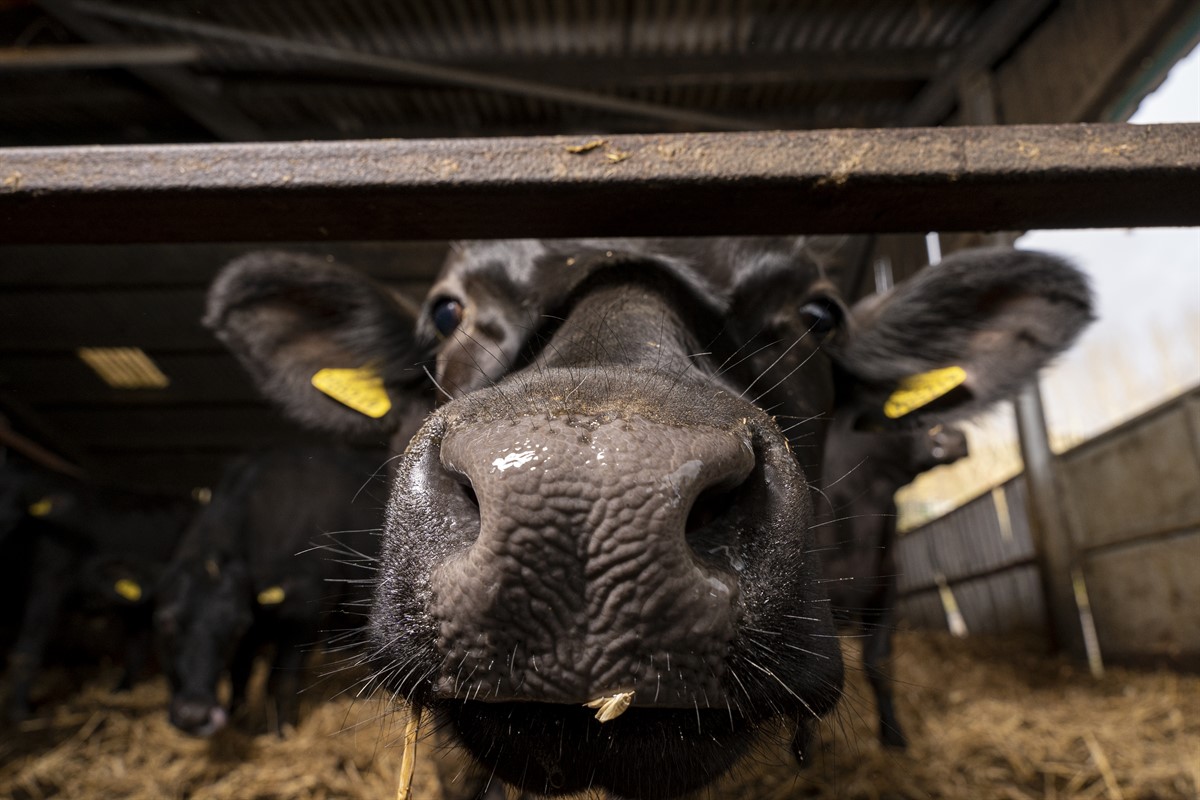The introduction of legislation follows the conclusion of the Gwaredu BVD scheme which was funded by the Welsh Government through the RDP, which saw more than 80% of Welsh cattle herds voluntarily screening for BVD, with 28% of those testing positive for the virus.
What is BVD?
BVD is a viral infection of cattle and it is an “immuno-suppressive” disease, meaning infected animals become more likely to develop other health conditions. BVD can cause abortions, infertility and impacts an animal’s productive capacity, causing a loss of milk yield and reduced appetite.
Welsh Government estimate that the annual costs of BVD presence to a 100-cow beef farm is £4,500 and for a 130-cow dairy farm, £15,000 a year. BVD is spread by “Persistently Infected” (PI) animals who become infected in the uterus during the early stages of pregnancy and although it may appear healthy, the PI animal will remain infected its whole life and will spread the disease to others in the herd. Animals that are infected by the PI animal through for example nose to nose contact, will not become PIs themselves, but will exhibit symptoms of the disease.
Changes from 1 July 2024
From 1 July 2024 all cattle herds in Wales will need to carry out annual BVD antibody screening using an approved laboratory. The results will be shared with cattle keepers, private farm vets and Welsh Government via a database which is being developed as part of the EIDCymru multi-species database project. Animals found to be PI’s will be restricted on the farm for life, must be housed indoors and must be isolated from the rest of the herd. It is recommended that they are sent to slaughter as soon as practically possible.
Changes from 1 July 2025
From 1st of July 2025, all Welsh cattle herds that have a herd BVD status of BVD Not Negative (meaning there is a PI animal on the holding) will be placed under movement restrictions and a negative antigen test (valid for 30 days) will be needed for each animal moving unless moving to slaughter or under license. The whole herd movement restrictions would be lifted when all PI animals are removed and any positive animals are retested and it is confirmed that they are not PIs.
There will also be requirements to test incoming animals where BVD status is unknown, to test aborted or stillborn calves and to test calves born into BVD Not Negative herds. There will also be a requirement to disclose BVD herd status and individual animal status before moves occur and keepers will have 72 hours before a movement or sale to use the online system to notify the status to the prospective seller or market.
NFU Cymru Deputy President Abi Reader said: “The fact that over 80% of Welsh cattle herds engaged in voluntary screening during the time the Gwaredu BVD scheme was operational, demonstrates the commitment cattle farmers in Wales make to operating at the highest standards of animal health and welfare. There are clear benefits to eradicating Bovine Viral Diarrhoea (BVD) including improved animal health, welfare and productivity, all of which reduce the carbon footprint of Welsh beef. The introduction of legislation therefore seems a sensible next step on the journey in tackling this disease.
“However, the journey to eradicating BVD is not easy. NFU Cymru stands willing to work with Welsh Government and the wider cattle industry on the governance proposals but note that whilst Welsh farmers are ready to play our part, we should not be left shouldering the full cost.”
More information about the BVD eradication scheme is available on the Welsh Government website. Cattle keepers in Wales are encouraged to speak to their private vet about BVD and the steps that can be taken on farm today.
